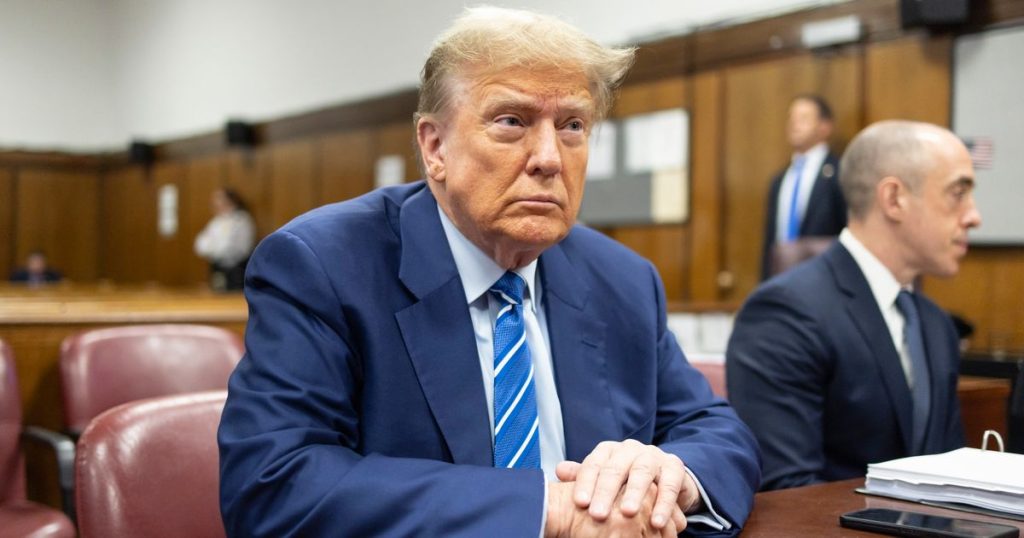A federal judge has rejected former President Donald Trump’s request to intervene in his New York hush money criminal case, where he was convicted on 34 felony counts related to concealing a $130,000 payment to Stormy Daniels. Trump sought to overturn his conviction and delay his sentencing, but U.S. District Judge Alvin Hellerstein ruled that he did not provide sufficient proof for a federal court to take control of the case from the state court where it was tried. Manhattan prosecutors objected to Trump’s effort to delay post-trial decisions while seeking federal court intervention, arguing that the trial judge should not postpone decisions on sentencing and the verdict.
The Manhattan district attorney’s office urged the trial judge, Juan M. Merchan, not to delay ruling on Trump’s motion to overturn the verdict. Trump was convicted of falsifying business records in an attempt to conceal the hush money payment to Stormy Daniels, an allegation he has denied. The potential sentence for this offense includes up to four years in prison, probation, or a fine. Prosecutors have not taken a stance on delaying sentencing, allowing Merchan to determine an appropriate post-trial schedule. Trump’s lawyers argued that delaying sentencing until after the November election would give him time to weigh his options, including a possible appeal.
Trump’s lawyers contend that postponing the proceedings is necessary as they seek to rectify what they believe was a biased verdict due to violations of Trump’s constitutional rights, as well as the Supreme Court ruling on presidential immunity. They assert that moving the case to federal court would allow them to challenge the verdict on immunity grounds. The Supreme Court’s decision narrows the scope of prosecutions for ex-presidents and limits the ability of prosecutors to use official acts as evidence of illegal unofficial actions. Trump’s legal team argues that prosecutors rushed to trial without waiting for the immunity ruling, and that evidence presented to the jury should have been inadmissible under the new guidelines.
Trump’s lawyers previously invoked presidential immunity in an unsuccessful attempt last year to transfer the case from state court to federal court. They maintain that the case should be dismissed on immunity grounds and that the verdict was tainted by the introduction of improper evidence during the trial. The trial judge is expected to rule on Trump’s motion to overturn the verdict soon, along with a decision on sentencing. Trump’s lawyers have raised concerns about the timing of the sentencing, suggesting that holding it just days after the immunity decision would not provide adequate time for Trump to respond. They argue that sentencing Trump before the election would interfere with the political process, potentially impacting his electoral prospects as the campaign season is underway.


